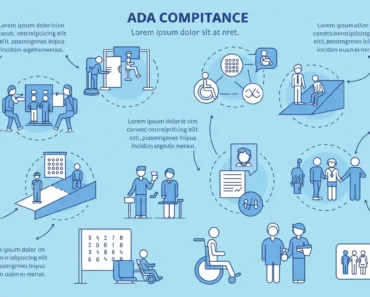Ever wondered what the real deal is with working under the table? It might seem like a quick and easy way to make some extra cash without the hassle of taxes and paperwork, but what happens when you get caught? Let’s dive into the nitty-gritty of working off the books and explore the potential consequences.
Understanding ‘Under the Table’ Work
First things first, what exactly does working under the table mean? Essentially, it’s when someone gets paid in cash without any official record of employment. This means no taxes, no benefits, and no legal protections. Sounds tempting, right? But hold your horses, because there are some serious risks involved.
The Appeal of Cash Jobs
Why do people choose to work under the table? For many, it’s about the immediate cash flow. There’s no waiting for payday, and you get to keep every penny you earn. Plus, it might seem like a way to avoid taxes altogether. But remember, if something sounds too good to be true, it probably is.
Common Industries for Under the Table Work
You’ll often find under the table jobs in industries like construction, hospitality, and domestic work. These sectors rely heavily on temporary or seasonal workers, making it easier for employers to pay cash without keeping records. However, this practice is not limited to these industries alone.
Legal Implications of Working Under the Table
Now, let’s talk about the elephant in the room: the legal consequences. Working under the table is illegal in most places because it involves tax evasion. When you don’t report your income, you’re essentially dodging your tax responsibilities, and that’s a big no-no in the eyes of the law.
Tax Evasion and Penalties
Getting caught means facing penalties for tax evasion. The IRS doesn’t take kindly to those who skip out on taxes, and they have the power to impose hefty fines and even jail time. According to the IRS, penalties can include fines up to $250,000 and imprisonment for up to five years.
Impact on Social Security and Benefits
When you work under the table, you’re not contributing to Social Security or Medicare. This might not seem like a big deal now, but it can seriously impact your benefits down the line. No contributions mean no benefits when you retire or if you become disabled.
Employer Consequences
It’s not just the workers who face consequences; employers can also get into hot water. Hiring under the table workers means they’re not paying their share of employment taxes, which is illegal. If caught, they could face fines, back taxes, and even criminal charges.
Legal Repercussions for Employers
Employers caught paying under the table can face severe penalties. The U.S. Department of Labor states that employers may be required to pay back wages, taxes, and penalties. In some cases, they could even lose their business licenses.
Reputation and Business Impact
Beyond legal issues, getting caught can damage an employer’s reputation. Customers and clients may lose trust, and the business could suffer financially. It’s a risk that many employers find isn’t worth taking.
What to Do If You’re Caught
So, what happens if you do get caught? The first step is to come clean. Contact a tax professional or attorney to help you navigate the situation. They can assist in negotiating with the IRS and minimizing penalties.
Steps to Rectify the Situation
You’ll likely need to file amended tax returns and pay any back taxes owed. The IRS may offer payment plans or settlements to help you manage the financial burden. It’s crucial to act quickly and honestly to avoid further complications.
Seeking Legal Advice
Consulting with a legal professional is essential. They can provide guidance on your rights and responsibilities and help you understand the potential outcomes. It’s always better to be proactive rather than reactive in these situations.
Conclusion
In conclusion, while working under the table might seem like an easy way to earn extra cash, the risks far outweigh the benefits. From legal penalties to lost benefits, the consequences can be severe. It’s always best to play by the rules and ensure you’re protected in the long run.
Frequently Asked Questions
- Is working under the table illegal everywhere?
Yes, in most countries, working under the table is considered illegal because it involves tax evasion. - Can I report my under the table income?
Yes, you can and should report all income to the IRS to avoid legal issues. - What if my employer insists on paying me under the table?
It’s important to discuss your concerns with your employer and seek legal advice if necessary. - How can I avoid working under the table?
Look for jobs that offer official employment contracts and ensure all income is reported. - What are the long-term effects of working under the table?
Long-term effects include lack of benefits, potential legal issues, and financial instability.

